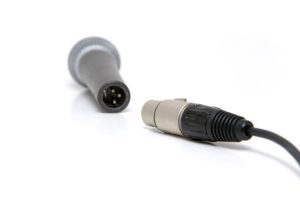
From the time he was a high school student, Rohit Kalyanpur thought it was peculiar that although it’s possible to create energy from a solar panel, the panels have long been used almost exclusively on rooftops and as part of industrial-scale solar grids. “I hadn’t seen [anything solar-powered] in the things people use every day other than calculators and lawn lights,” he tells us from him home in Chicago — though he’s moving to the Bay Area next month.
It wasn’t just a passing thought for Kalyanpur. Through research positions in high school, he continued to learn about energy and work on a solar charging prototype — initially to charge his iPhone — while continuing to wonder what other materials might be powered spontaneously just by shining light on it.
What he quickly discovered, he says, is there were no developer tools to build a self-charging project. Unlike with hardware projects, where developers can turn to the open-source electronic prototyping platform Arduino, and to Raspberry Pi, a tiny computer the size of a credit card and was created in 2012 to help students understand how computers work, there was “nothing you could use to optimize a solar product,” he says.
Fast-forward, and Kalyanpur says there is now — and he helped build it.
It’s been several years in the making. After attending the University of Illinois at Urbana-Champaign for two years and befriending a fellow student, Paul Couston, who helped manage and invest the university’s $10 million green fund, the pair dropped out of school to start their now four-person company, Optivolt Labs. Entry into the accelerator program Techstars Chicago was the impetus they needed, and they’ve been gaining momentum since. In fact, Kalyanpur, now 21, was recently given a Thiel Fellowship, a two-year-long program that includes a $100,000 grant to young people who want to build new things, along with a lot of mentorships and key introductions.
Now, the company has closed on a separate $1.75 million round of seed funding from a long list of notable individual investors, including Eventbrite co-founders Kevin & Julia Hartz; TJ Parker, who is the founder and CEO of PillPack (now an Amazon subsidiary); Pinterest COO Francoise Brougher: and Jeff Lutz, a former Google SVP.
What they’re buying into exactly is the promise of a scalable technology stack for solar integration. Though still nascent, Optivolt has already figured out a way to provide efficient power transfer systems, solar developer and simulation tools and cloud-based API’s to enable fleets of machines to self charge in ambient light, says Kalyanpur. Think e-scooters, EVs, drones, sensors and other connected devices.
Asked how it all works on a more granular level, Kalyanpur declines to dive into specifics, but he says the company will begin testing its technology soon with a number of “enterprise fleets” that have already signed on to work with Optivolt in pilot programs.
If it works as planned, it sounds like a pretty big opportunity. Though some companies have begun making smaller solar-powered vehicles, there are presumably many outfits that would prefer to find a way to retrofit the hardware they already have in the world, which Kalyanpur says will be possible.
He says they can use their existing batteries, too — that the solar won’t just power the devices or vehicles in real time but allow them to store some of that energy, too. Optivolt’s technology “seamlessly integrates into everyday products, so you don’t have to change the product design meaningfully,” he insists.
We’ll be curious to see if see if it does what he thinks it can. It sounds like we aren’t the only ones, either.
Asked about Optivolt’s road map, Kalynapur suggests that one is coming together. The company’s top priority, however — beyond hiring more engineering talent with its brand new round — it to see first how it works in the field.



